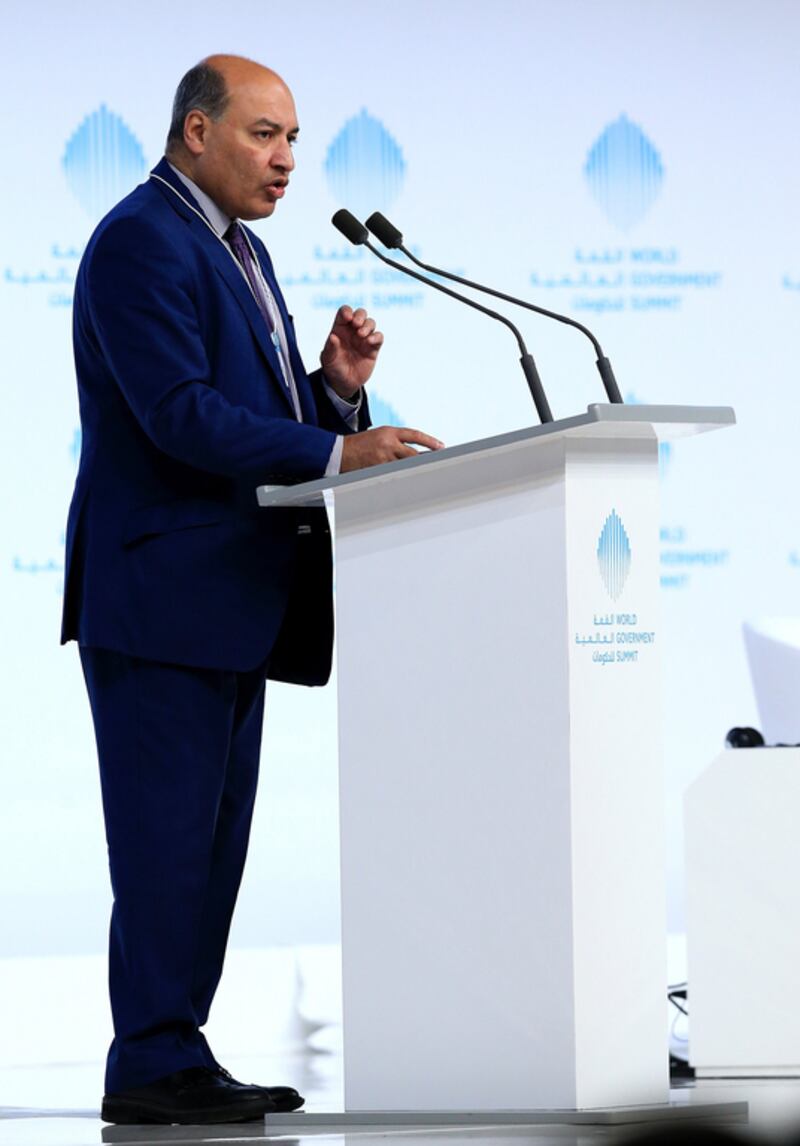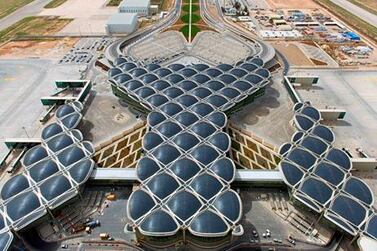The European Bank for Reconstruction and Development (EBRD) will swing back to profit growth this year after being impacted by Turkey’s economic volatility and plans to invest about 10 billion euros (Dh41.21bn) this year of which about 20 per cent will be in the Middle East, its president said.
Over the past seven years, the EBRD has invested billions of euros in 213 projects, and Egypt became the bank's number one market in the Middle East and North Africa, Suma Chakrabarti, who heads the multilateral developmental investment bank, said in an interview with The National at the World Economic Forum.
“In Egypt we invested about €1.1bn last year. I think we’ll probably invest about the same again this year. So, I would expect something north of €2bn again this year in the region. A billion in Egypt and rest in other countries,” he said.
The EBRD, founded in 1991 by the international community to help communist Eastern Bloc countries embrace capitalism after the end of the Cold War. The bank operates across 38 markets around the world and in the Middle East is active in Morocco, Tunisia, Egypt, Jordan, Lebanon, and the West Bank and Gaza. The institution aims to invest €11bn annually by 2021 and seeks to take part in projects that help countries move toward more market-based economics in the region,Mr Chakrabarti said.
“Good projects come along because of policies changing in the right direction and making the business climate easier for investors to come to the region,” he said. “That’s happening in the region without a doubt, but that progress needs to be maintained.”
Mr Chakrabarti said the EBRD, owned by 67 governments, would consider investing in the reconstruction of Syria if the political process in the war-torn country produces a settlement that represents all Syrians.
“We are very closely monitoring the situation,” said Mr Chakrabarti. “If and when there is an inclusive settlement -- inclusive is important because for us we have a mandate where we work in countries moving towards political pluralism and towards democracy…[then] provided those conditions are there, Syria qualifies. But we would do that with other multilateral development banks we wouldn’t do that on our own. We’re waiting to see when this inclusive settlement finally appears.”
There are no precise figures for the cost reconstruction of Syria which has been at war for more than eight years. The cost of reconstruction ranges between $250bn, according to some UN figures, to as high as $400bn by other estimates.
The London-based EBRD will continue to invest in Turkey despite being heavily impacted by the economic volatility of the country which contributed to its profit being halved last year from 2017.
“Yes, but judiciously as we always have,” said Mr Chakrabarti, when asked if the bank would continue to invest in Turkey. “Turkey, I think because of the size of the economy, the diversification of the economy, means it’s always going to be an economy of great interest. The key issue is how long will it take to go back to where it was going.”
Turkey’s economy, the world's 17th largest, slid into recession in the fourth quarter of 2018, shrinking by 2.4 per cent year-on-year and prompting the central bank to raise interest rates, while the lira tumbled almost 30 per cent against the dollar last year. Turkey’s credit rating was cut to junk by the three main ratings agencies, with a negative outlook from two.
“I have great faith actually in the new economic program that government has put together…I have confidence that if they truly implement every element of this new economic program…then Turkey will bounce back within a year or so,” he said.
Turkey’s economic problems dented EBRD’s profits last year which plunged to €340 million from €772m in 2017. The EBRD expects to swing back to profit this year and has registered “double digit” profit growth year on year in the first three months of the year, said Mr Chakrabarti.
The bank’s non-performing loans, which rose to 4.7 per cent from 3.9 per cent in 2017 ,“will be stabilising,” he said. “I think it’s going to take a year or two to get back down.”
Mr Chakrabarti’s concerns over Brexit were muted as the bank has carried out analysis on the impact of the UK leaving the European Union.
“If there really was a hard Brexit then we have traced the economic and trade impact through and it could affect some of the countries of our operation; in the South Eastern Europe and Greece quite badly, in which case EBRD would probably have to lend quite heavily counter cyclically into those economies,” he said. “But the more one sees what going on clearly, we are moving to a much softer Brexit. Under softer Brexit scenarios the modelling shows that the impact would be very limited on these economies.”









